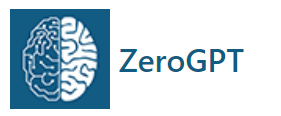Ai Text Detector Free: A Comprehensive Guide to Identifying AI-Generated Texts from stuekeeper's blog

Introduction
In the digital age, the rise of artificial intelligence has given birth to a new challenge: distinguishing between human-generated content and AI-generated text. As the demand for AI-generated content continues to grow, it's crucial to have the means to identify it accurately. In this comprehensive guide, we delve into the world of AI text detection, offering valuable insights and tools to help you distinguish between human and AI-created texts.
Identify AI-generated texts easily and at no cost with the Ai Text Detector Free tool, exclusively on zerogpt.com.
AI-generated text, often created by advanced language models like GPT-3, has become increasingly prevalent across various online platforms. These algorithms can produce remarkably convincing text that mimics human writing. However, there are distinct characteristics that can help you identify AI-generated content.
1. Consistency and RepetitionOne common trait of AI-generated text is its consistency and lack of diversity. AI models tend to repeat certain phrases or ideas throughout a text. This repetition can be a telltale sign of automated content.
2. Lack of OriginalityAI-generated text often lacks original thought and creativity. It may rehash existing information without adding new insights or perspectives. Identifying a lack of unique ideas can aid in spotting AI-generated content.
3. Unusual Sentence StructureAI algorithms sometimes generate sentences with unusual structures or grammatical errors. These irregularities can stand out when compared to well-written, human-authored content.
4. Absence of Personal ExperienceAI-generated text rarely includes personal anecdotes or experiences, as it lacks real-life context. This absence of human touch can make it seem impersonal and robotic.
The Importance of Identifying AI TextRecognizing AI-generated text is vital for various reasons:
1. Trust and AuthenticityIn an era where trust is paramount, being able to distinguish AI-generated content from human-generated content ensures that your audience receives authentic and reliable information.
2. Legal and Ethical ConcernsAI-generated text can sometimes cross legal and ethical boundaries, such as copyright infringement or spreading misinformation. Accurate detection can help prevent such issues.
3. Content Quality AssuranceFor businesses and publications, maintaining the quality of content is crucial. Identifying AI-generated text can help ensure that only high-quality, human-created content is published.
How to Detect AI-Generated TextTo effectively identify AI-generated text, you can utilize the following methods and tools:
1. Language AnalysisCarefully analyze the language and writing style used in a piece of content. Look for signs of inconsistency, repetition, or unusual sentence structures.
2. AI Text Detection ToolsSeveral online tools and services are designed specifically for detecting AI-generated text. These tools use algorithms to analyze and flag potential AI-generated content.
3. Expert EvaluationIn some cases, it may be necessary to consult experts in the field of AI and natural language processing. Their expertise can help you identify subtle clues that automated tools might miss.
4. Manual ReviewWhen in doubt, a thorough manual review of the content can be invaluable. Human reviewers can often pick up on nuances that automated processes may overlook.
ConclusionIn the age of AI, being able to differentiate between human and AI-generated text is a valuable skill. This comprehensive guide has provided you with the knowledge and tools needed to identify AI-generated content effectively. By applying these techniques, you can maintain trust, uphold ethical standards, and ensure the quality of content in an ever-evolving digital landscape.

The Wall